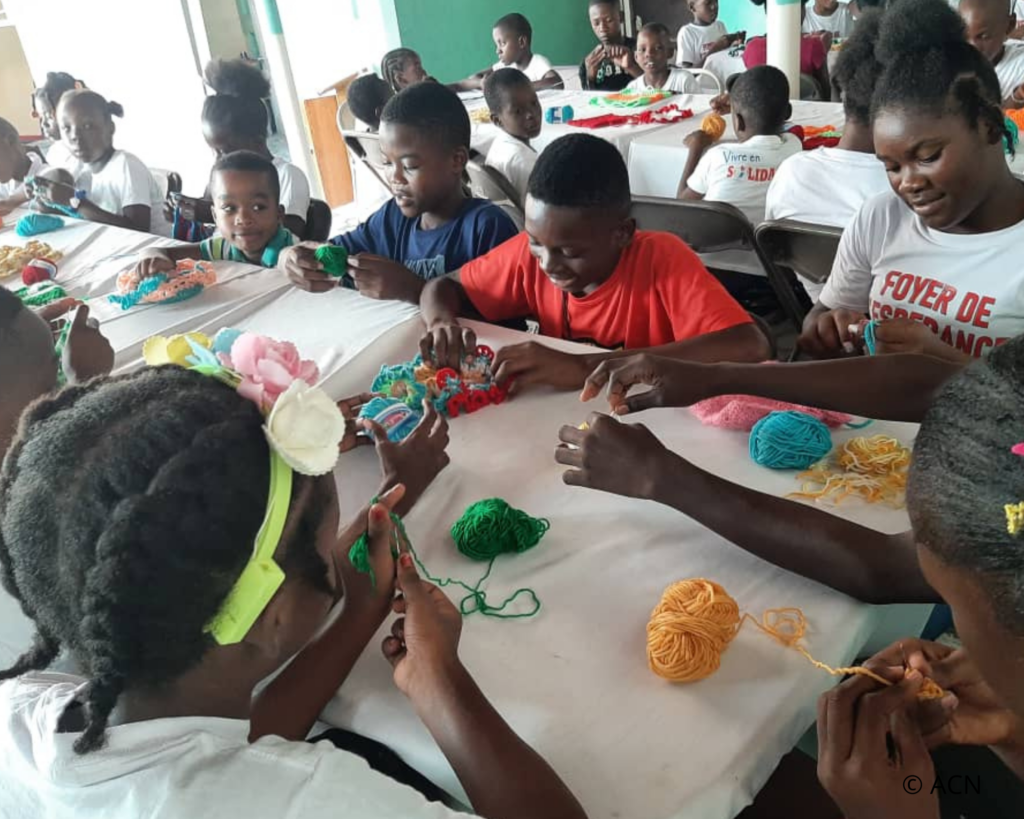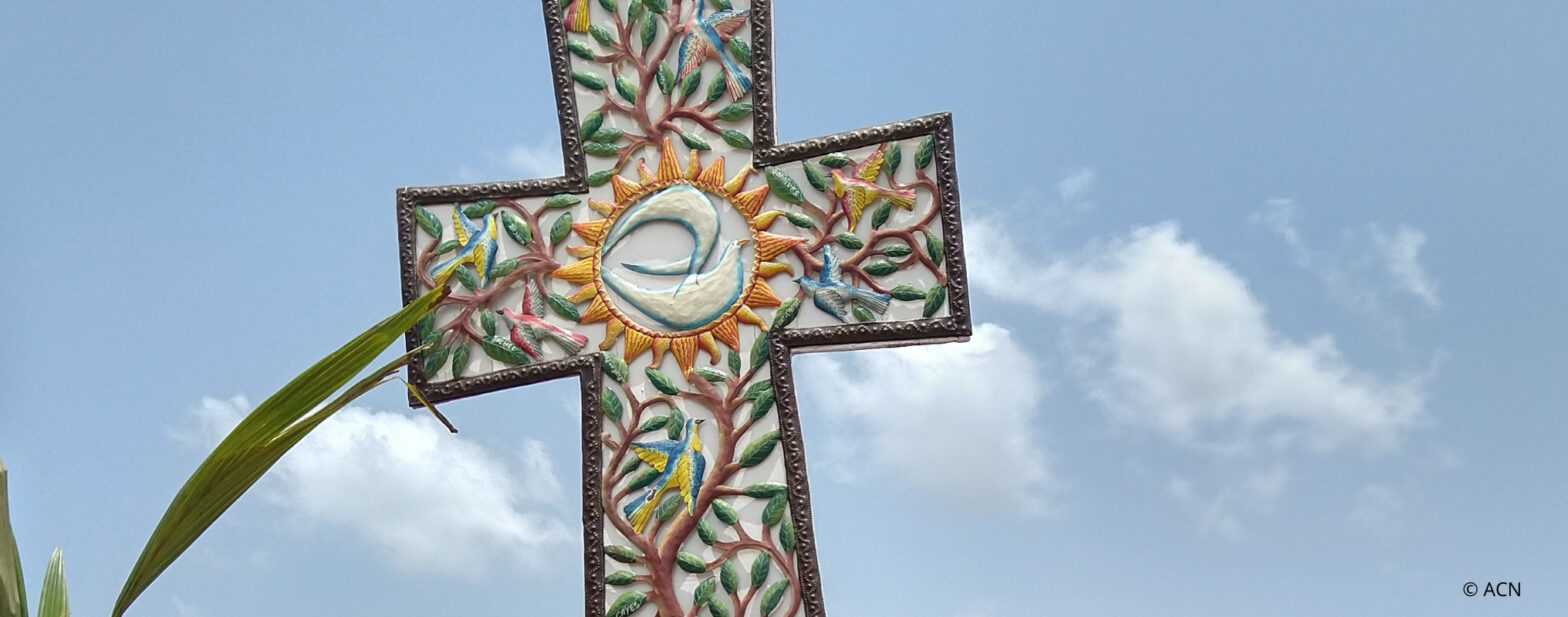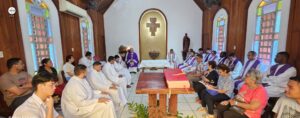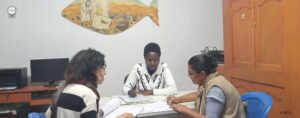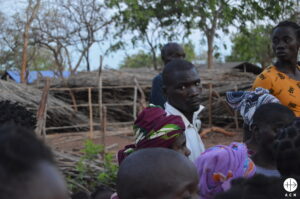Plagued for months by gangs that plunder, kidnap and terrorize the population, Haiti continues to fight every day for its survival. Amid this terrible situation, the Church in the country remains a beacon of hope, says Fr Baudelaire Martial, a Haitian priest from the Congregation of the Holy Cross (photo), who visited the international headquarters of Aid to the Church in Need (ACN).
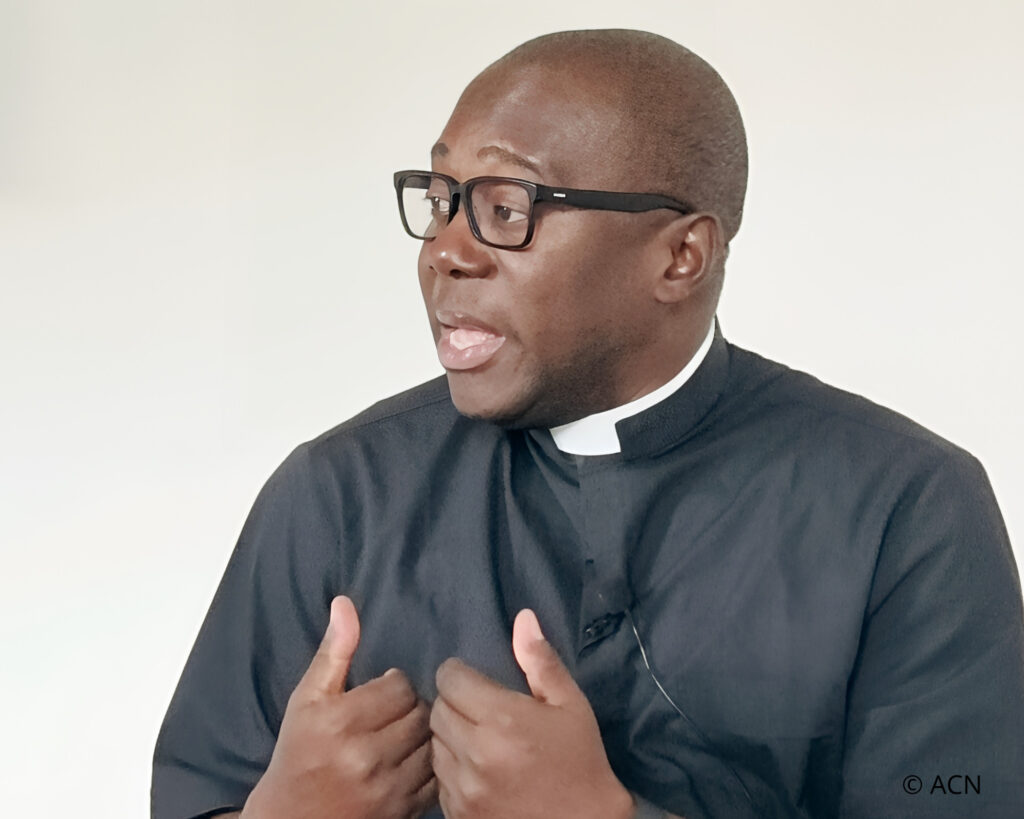
ACN: Around 80% of the capital and of the main roads are controlled by gangs. What is the situation in Port-au-Prince in terms of security nowadays?
The situation in Port-au-Prince is unacceptable, intolerable and inconceivable. We live in very precarious conditions. People are hungry and there is a shortage of medication. Many doctors have been kidnapped. Some schools are still closed, teachers make very little money, there is no tourism, and the major tourist compound of Labadee (in the north) is closed. The agricultural sector faces great difficulties, for example the rice paddies of the Artibonite region were taken by gangs armed with high-calibre weapons. In general, the situation in the country in terms of safety is very complicated, and, to make it worse, we are getting poorer by the day.
Do you believe the situation might improve following the recent arrival of a contingent of Kenyan policemen under the auspices of the UN?
Yes, we are hoping that the Kenyan authorities might help us get back on our feet. Now it is the gangs who are beginning to be afraid, and we have seen them trying to negotiate. For some days the situation has been calmer. Nonetheless, we ask for more than apparent calm: we demand the release of Port-au-Prince and of all the remotest corners of Haiti, so that we can live as before. The other day the state recovered control of the Great Central Hospital of Port-au-Prince, which is a promising sign.
Haiti has just marked the third anniversary of the murder of President Jovenel Moïse. What is the political situation at the moment? Will it be possible to organize elections in the coming months?
The priority at the moment, for everyone, is security, and putting food on the table! Eventually we will have a period of constitutional reform, followed by an electoral process and, finally, free, honest and democratic elections. According to the agreement that allowed for the forming of the current government, the Transitional Presidential Council has two years to organize elections, but you can’t do anything without security.
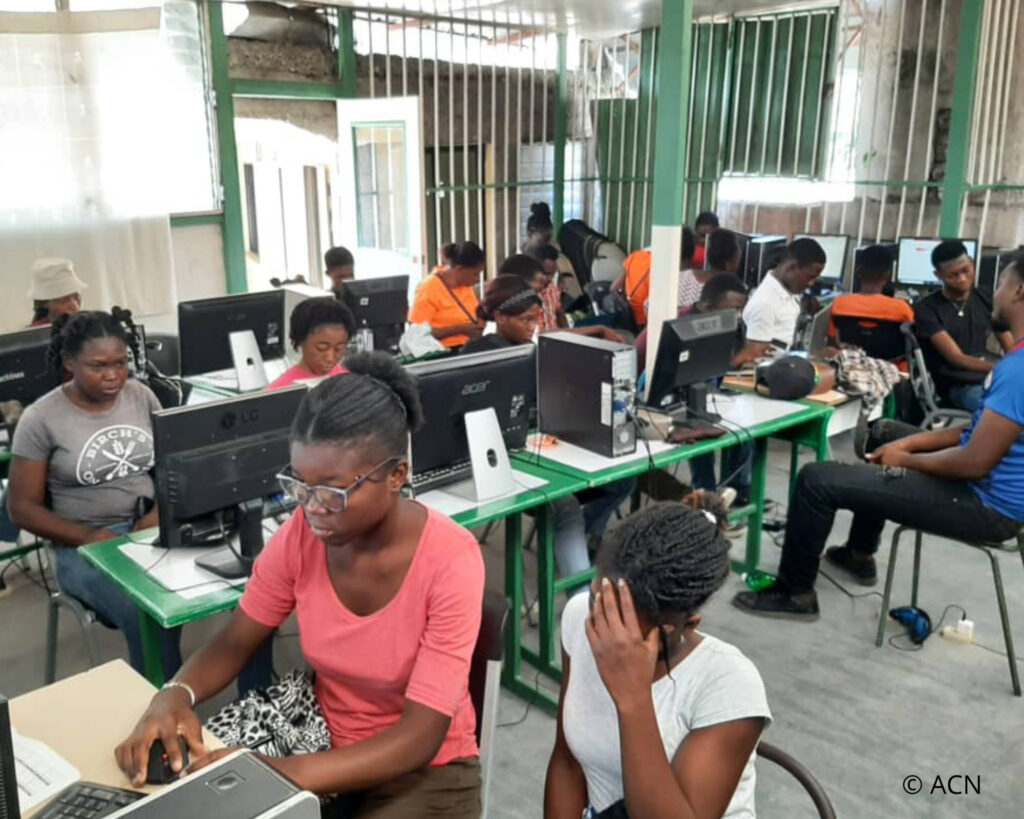
Many religious have been kidnapped in recent years. Is the Church in particular seen as a target for these gangs?
I have the impression that there is an organized campaign against the Church, because we have seen so many priests and religious fall victim to these gangs. In my community, a priest was kidnapped, and we had to pay a ransom for his release. Many dioceses and communities have suffered from theft and aggression. This is how they pressure the Church into silence, but our prophetic mission requires us to call out what is evil. We know that this is a risky position, but that is our cross, and we accept it. As a Church, we must have the faith and the strength to accompany the people and all those who suffer, and we will continue to do so, even at risk to our own lives.
Living in Port-au-Prince, have you ever felt afraid?
Back home, when we leave the house, we never know if we’re coming back. I have sometimes had to throw myself to the ground to dodge bullets. We hear the sound of automatic weapons throughout the day. We are afraid, but we have to be present to support our people. We are suffering, but we are called to go beyond this suffering, towards hope.
What is the situation for children and young people?
The young people live in daily terror. In the Foyer de l’Esperance—a social centre that I run for young people—a 12-year-old girl was murdered, and another was violently attacked. Several schools are closed. Fortunately, thanks to everything that was set up during the pandemic, some of the schools are prepared to teach online. We finished this school year as best we could, and we hope that things will have improved before the next year begins.
Is it safe for the faithful to go to Mass in Port-au-Prince?
Many of the parishes are closed. Some of them, such as the cathedral, are in conflict zones. This year, for example, the Chrism Mass was celebrated in the Church of Our Lady of Altagracia in Delmas, instead of in the cathedral. Other areas are more accessible, and so the faithful have taken to gathering in the parishes that are open. We have also taken to offering pastoral support online. The people’s faith remains alive. A large crowd attended Holy Thursday Mass, for instance, despite the danger.
How do you get hope to go on each day?
In the face of all these difficulties, as pastors of our people, we try to keep hope alive despite everything. Fortunately, the Church is there to support the people. Some people are traumatized, and have suffered serious injury or abuse, but, as time goes by, the shock diminishes. Fear remains, but as a Church we cannot surrender, we have to keep moving forward, and bestowing hope.
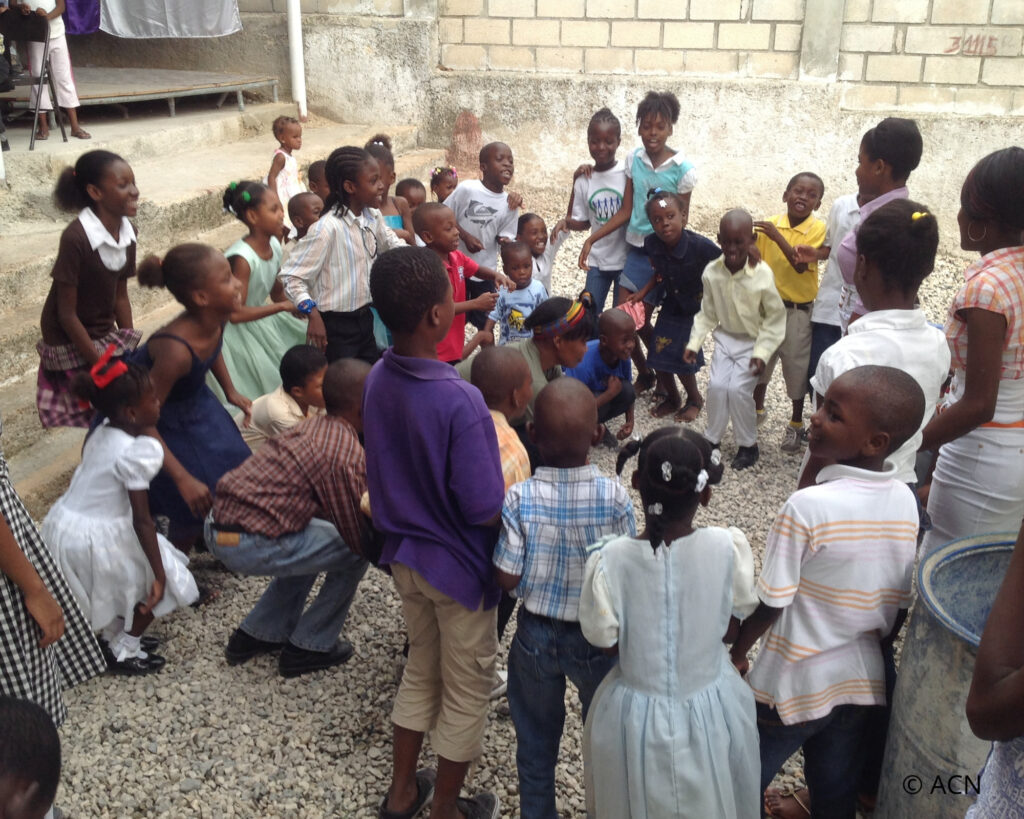
What is your role in all this, as a priest?
As a priest, my role is to bear witness. This crisis is also an opportunity to love and support, especially those who are facing difficulties, and the needy. Because it is our responsibility to accompany them and help them recover hope. I have been the director of CIFOR (The Inter-Institute Centre for Religious Formation) for 15 years. That is where, with the support of ACN, we provide the seminarians with intellectual, spiritual and human formation.
Do you have any special message for the benefactors who support Haiti?
I would like to thank ACN’s benefactors, because thanks to your help, the Haitian Church can still carry out its prophetic role. Thank you, from the bottom of my heart, because without ACN, the calamity in Haiti would be even worse, and without the foundation’s support the situation of the seminarians would be even darker. A million thanks!
In 2023 Aid to the Church in Need supported the Church in Haiti with 55 projects valued at 1,159 million dollars. In the current context of generalized crisis, amongst these projects ACN has been funding the formation of future priests, helping female religious orders with subsistence aid, and the priests with Mass stipends. For many years, ACN has been supporting CIFORs formation programmes, providing young religious men and women with training adapted to the needs of consecrated life.
